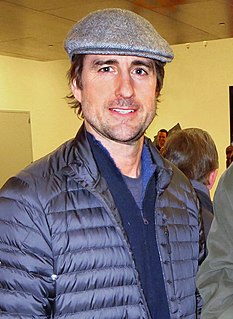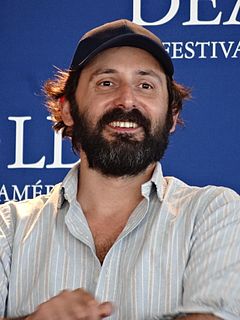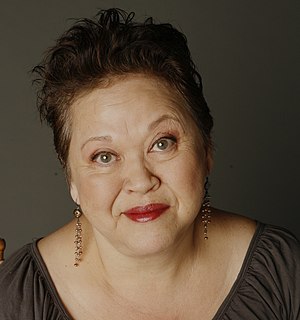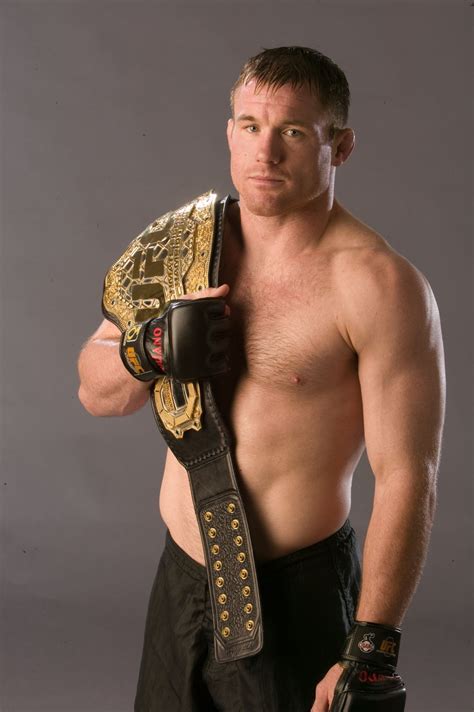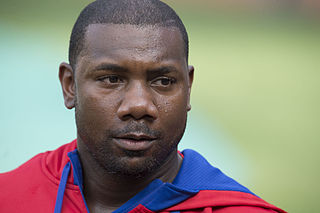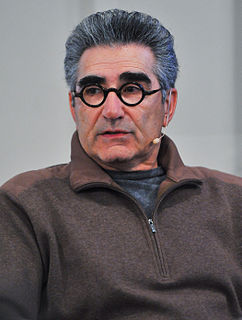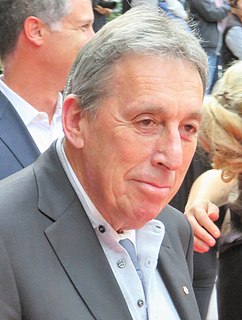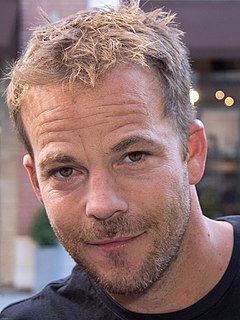A Quote by Adam McKay
When you screen it the first couple times, you're just trying to get the movie to work, trying to get the story to flow, trying to find out where your areas are where you have enough breath to laugh a little bit. So you're doing that the first two or three screenings, and then finally, you dial the movie in and it's working, and at that point, it's 50/50 as far as what's funny and what's working. Sometimes you'll put something in and it will just die so hard that it'll almost kill the movie.
Related Quotes
I always get a headache the first time I watch a movie I'm in. Because you're staring at the screen so hard, your brain is doing all this work trying to put things in context of what the day-to-day experience of making it was. And the timeline that's in your head of when it was made, and on what day, how you felt. And then you're also trying to grasp what it's been edited into.
You live and die two or three times making a movie. First, you write it, and the first pivotal moment comes when you can get it made. The second is in the process of making it, when the movie reveals itself to you, its flaws and its virtues. Then the most unnerving moment is when that movie is then launched into the world. It’s like bringing your kid to the first day at school and somebody points out that it has bowlegs, it is cross-eyed, or it’s gorgeous. You feel very exposed.
I have become a giant fan of the testing process, especially with a comedy. I mean, they tell you what's funny. It's almost tailor-made for people who shoot the way we shoot, trying a million different options and versions of things. Because the audience doesn't laugh at a joke, we put in another joke. If they don't laugh at the next joke, we put in another joke. You just keep doing them and you can get the movie to the point where every joke is funny, if you have enough options in the can.
A lot of the people I'm working with are not actors, or it's their first time in a movie. I'm not trying to shape performances, coax performances out of them. It's more like I want to put them in situations that naturally work or allow them to be themselves. If it's not happening, I'll just completely switch it up, rather than trying to make it work.
It's so nice to run into people even now who - if I'm out, a couple of times a week, somebody comes up to me and says, 'I just loved you in '50 First Dates.' That movie is my favorite movie. I just watched it last night.' In my head, I'm always thinking, 'You're kidding me. I never watch anything twice.'
When you're working with movie stars, part of the deal is that, if they have something to say, you'd better listen. You don't have to absolutely listen and not talk, but there is another creative force at work, and to be successful working with movie stars, you have to bring that force to work for you. You have to find something that's comfortable for them, and at the same time, that's in the parameters of what you're trying to do yourself.
The press still thinks [global warming] is controversial. So they find the 1% of the scientists and put them up as if they're 50% of the research results. You in the public would have no idea that this is basically a done deal and that we're on to other problems, because the journalists are trying to give it a 50/50 story. It's not a 50/50 story. It's not. Period.
David Zucker was great! Those guys are funny. I mean, they are funny. There's a wonderful thing about doing that kind of work like Superhero Movie: You have to be real, but you also have to get the laugh. There you are, your director and the producers are right there at the monitors, and you either get the laugh or you don't. And so you just do it until you get the laugh.




